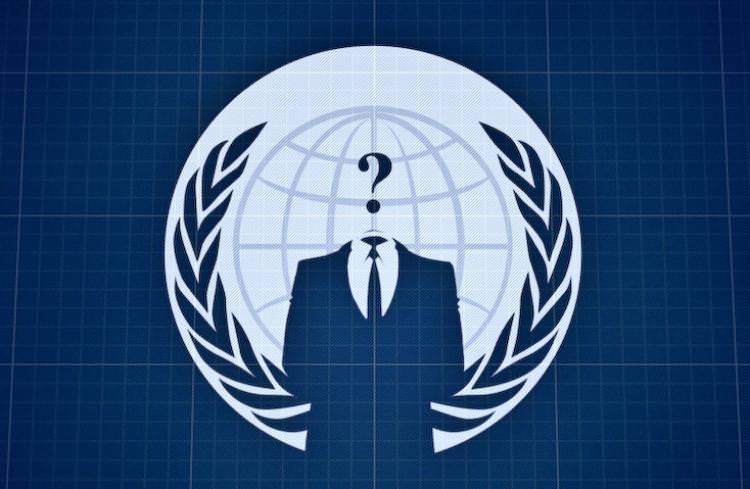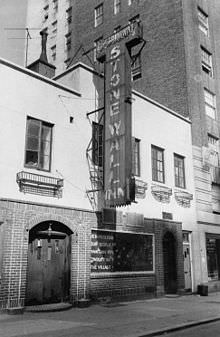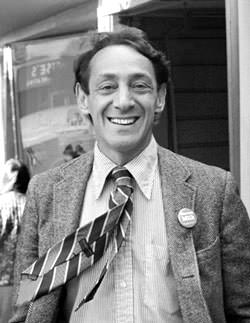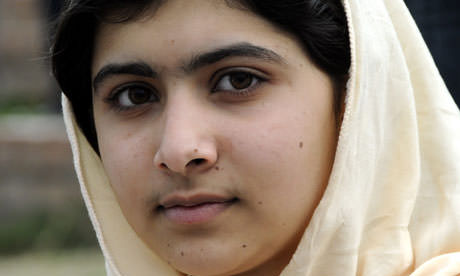Off With the Law
Rising Against: Creating social change by breaking common laws
By: Chantelle (Tilly) Wark, Staff Writer
 History is filled with the strength and might of the human race. Often, history has been made with people trying to better society, whether it was through a political movement or the need for knowledge. Other times, history is made up of those fighting against the system—at times, breaking the law—in the cause of what they think is right. Today is no different.
History is filled with the strength and might of the human race. Often, history has been made with people trying to better society, whether it was through a political movement or the need for knowledge. Other times, history is made up of those fighting against the system—at times, breaking the law—in the cause of what they think is right. Today is no different.
That’s why the Arbitrage has decided to profile some of the latest developments within three causes that are near and dear to our hearts. Regardless of your view on their positions, the following groups and people have risen, showing what the will of man and womankind is made of.
Be wary, Big Brother is watching you
Who is Anonymous?
When a person used to hear the name Anonymous, a sense of unknown is what would have come to mind. Such is not the case any longer. Now, when the name Anonymous is heard, an image of an unnamed collective behind Guy Fawkes masks is what’s seen.
Anonymous is an organization of approximately 50,000 members world-wide that has been in operation since 2003. There are those who praise Anonymous, viewing the collective as freedom fighters of the internet, or thinking of the group as a digital Robin Hood, robbing various governments and organizations of information. Just as many people perceive the members behind the masks as cyber terrorists.
However, no matter how the collective is perceived, Anonymous continue to believe that they are hacking for the greater good, strong in their beliefs for freedom of information. As well, the organization makes their views on this belief quite clear: “We are Anonymous. We are Legion. We do not forgive. We do not forget. Expect us.”
Sabu and Commander X
In the everyday world, a 28-year-old man was known simply as Hector Xavier Monsegur. However, in the land of binary, Hector Monsegur was Sabu, an Anonymous hacker who surrendered his online identity to the FBI after being presented with a string of charges on June 7, 2011 that could total 124 years behind bars.
Faced with these charges, Sabu pled guilty before becoming a part of an FBI blackhat hacking group within Anonymous. With the go-ahead from the FBI, Sabu assisted Anonymous deface government websites and corporate websites. He also played a crucial role in hacking Stratfor, a private, global intelligence firm.
With Sabu’s assistance, multiple arrests had been made, and the cocky confidence within Anonymous had quickly become sombre. Though Anonymous claimed to have no real leader, depriving them of Sabu meant taking away a crucial hacker who couldn’t be easily replaced.
Christopher Doyan, a resident of Santa Cruz, California, hacked the county website for a thirty-minute virtual sit-in under his Anonymous name Commander X, in protest to a homeless encampment being removed from the courthouse steps in September 2011. In the States, Commander X would be served with 15 years in prison for his sit-in, a minor assault on his hacking resume.
Commander X, in a May 2012 interview with a National Post reporter, stood by his belief that Anonymous isn’t a cyber-terrorist organization, and that what the organization does is for the greater good. In his interview, Commander X stated, “we’re fighting for the people, we are fighting, as Occupy likes to say, for the 99%.” He also feels no guilt regarding the high-profile hacks he’s been a part of, from Syrian President Assad’s email database to Stratcor, claiming that, “every email database, every single one has had crimes in it,” never deeming any of the people at the victim end of the hacks are innocent.
Not wanting to face his prison term, Commander X fled to Canada to avoid prosecution. If he were still in the United States, he realizes that the virtual sit-in charges would be the least of his worries as he’d be presented with a whole other slew of hacking-related felonies. For the duration of the trial, which would last a few years, he wouldn’t be able to access his Facebook, Twitter, or most important, other members of Anonymous.
[pullquote]The power has shifted and control has been traded. Be wary, Big Brother, Anonymous is watching you.[/pullquote]
A New Big Brother?
Anyone who’s familiar with George Orwell is familiar with the daunting phrase, “Big Brother is watching you,” an uncomfortable thought as we’re now in an era of mass surveillance and over-controlling authority figures. Big Brother has often been synonymous with the government, but since the formation of Anonymous, this may very well change.
If the claims of Commander X are true, Anonymous has managed to acquire access to every classified database that exists in the United States. Commander X has also stated that, “it’s a matter of when we leak the contents of those databases, not if.” With these confident statements, it appears that the American government at the very least has lost control, along with the Parliaments of many other nations, and that Anonymous is the new power to be reckoned with.
The power has shifted and control has been traded. Be wary, Big Brother, Anonymous is watching you.
A Few Hacks Worth Noting
Westboro Baptist Church: In the wake of the Sandy Hook Elementary School shootings, the Westboro Baptist Church planned to protest the funerals of the victims, as they believed it was God executing his judgement. Anonymous retaliated by hacking the WBC database, and releasing the congregation’s personal information, such as phone numbers and e-mail addresses.
Chinese Government: Upon breaking into hundreds of websites within the Chinese Government, the “Great Firewall of China” was downed, and replaced with tips on bypassing government censorship.
The United Nations: The UN’s official website was hacked with accusations that the United Nations ignored hunger strikers in Palestine for protesting detention without trial in Israel.
Greek Ministry of Finance: Greece’s Ministry of Finance website was breached, with Anonymous leaking documents that would be embarrassing to the government. This included poorly-chosen passwords, and a JPY 900 million interest payment to be paid back to the Deutches Bank in Tokyo and London.
The Fight for Gay Freedom
For the most part, much of this world we live in is very open and accepting of difference. However, arguments can be made that many people, countries, and religious sects are vastly out of touch with the present, and are still living in the past, especially with regards to homosexuality.
Homosexuals are people who show sexual desire for someone of the same sex and have been around since the dawn of time, as well as homophobes, who are people prejudiced against them.
Though there have been many riots and public displays for gay equality throughout recent history, there are, sadly, still people and places in this world that continue to resist the call for equal rights. Despite all this, though, those who were once enemies of the Lesbian Gay Bisexual Transgender (LGBT) community are now starting to side with those members of society. Perhaps people are starting to realize that those who are LGBT aren’t so different from the rest of us after all.
LGBT in Canada
Canada is a nation of acceptance and difference, a place where homosexuals can freely be with whom they desire without any fears of having to keep who they are to themselves. Thanks to the Canadian Charter of Rights and Freedoms this great country has become a leader in the Americas with regards to gay equality. Same-sex sexual activity has been legal since 1969, while same-sex marriage has been legal since 2005. As well, Canada became the third country in the world to perform same-sex marriages. Ontario has been marrying homosexual couples since 2003. Canada also performed the world’s first legally-recognized same-sex marriage on January 14, 2001, which was legally upheld in court on June 10, 2003.
While Canada still has some work to do to support transgendered individuals, it can still boast an LGBT-equal present. Other nations meanwhile continue to be riddled with riots and fights for equality, along with arrests and attempts at rehabilitation.
Stonewall and Harvey Milk
Two of the most well-known fights for gay rights in history are the results of the Stonewall Riots and Harvey Milk. The Stonewall Riots happened on June 28, 1969, while Harvey Milk was, “the most famous and most significantly open LGBT official ever elected in the United States.
In 1950-60’s America, gay-friendly establishments were far and few between, as homosexuality was deemed an unacceptable way of life. However, the Stonewall Inn, which was run by the Mafia, catered to the poorest residents, and marginalized members of the gay community. A raid by police in 1969 led to one of the most spontaneous series of riots in history.
Police raids on suspected gay establishments in New York City were regular occurrences in the sixties. The routine was to check identification, check the genders of those in the establishment, seize alcohol, and arrest the men who were dressed as women. What wasn’t normal, though, was for the patrons of the Stonewall Inn to have the courage to retaliate.
Though a crowd had began to gather outside of the Inn during the raid, the riots didn’t truly begin until a transvestite, who had been beaten with a billy club, yelled to the crowd, “why don’t you guys do something?!” With that started the lighting of fires in garbage cans, kick lines, throwing of debris, from pennies to bricks, and mocking chants towards the police, who were severely outnumbered.
The storming of Stonewall led to the formation of many gay organizations, such as the Gay Liberation Front (GLF), and the Gay Activists Alliance (GAA). However, what is likely the most prominent legacy to come out of the Stonewall riots was the start of Gay Pride parades. The first parade was held on the anniversary of the Stonewall Inn siege, June 28, 1970, on Christopher Street. Though the parade attendees were unsure of what to expect, the New York Times reported that, “there was little open animosity, and some bystanders applauded when a tall, pretty girl carrying a sign ‘I am a Lesbian’ walked by.”
Like Stonewall, Harvey Milk also left a legacy as the first openly gay politician in America. In San Francisco, after being fed up with the treatment of the gay community, Milk reached a point where he knew he, “had to become involved or shut up.”
[pullquote]the riots didn’t truly begin until a transvestite, who had been beaten with a billy club, yelled to the crowd, “why don’t you guys do something?!”[/pullquote]
After a brief stint on the San Francisco Board of Permit Appeals, Milk began his campaign for the California State Assembly. As his campaigning was underway, his role as a representative of the gay community was also starting to expand. Though he lost the Assembly election, Milk went on to co-found the San Francisco Gay Democratic Club.
In response to an anti-gay vote that was held in Dade County, Miami, residents of the Castro District, led by Harvey Milk, embarked on a 5-mile march through San Francisco. As they marched, the gay activists chanted, “out of the bars, and into the streets!” And in response to Anita Bryant’s anti-gay movement in Miami, Milk declared, “this is the power of the gay community. Anita’s going to create a national gay force!”
Finally, Milk had won a Board of Supervisors campaign he had attempted many times before, winning by 30%. However, with the win came an increase in death threats. He was concerned about the possibility of being assassinated, so he would record his thoughts, saying into the tape, “if a bullet should enter my brain, let that bullet destroy every closet door.”
During his time in office, Milk began his tenure with his sponsorship of a bill that would outlaw discrimination towards homosexuals. According to the New York Times, when the bill Milk supported was passed, “the growing political power of homosexuals” was demonstrated. Not only was the political power of the gay community expanding, but so were the sizes of the Gay Freedom Day Parades in San Francisco, growing to 250 000- 375 000 attendees in 1978.
On November 27, 1978, Harvey Milk’s time on San Francisco’s Board of Supervisors came to a tragic end. Daniel White, a supervisor who had resigned from his position, assassinated Harvey Milk and the city’s Mayor, George Moscone. Even in death, Milk’s message rang clear: homosexuals need to fight for their freedom, country, for themselves, and to no longer hide quietly in their closets.
The Present Reality
Much progress has been made in favour of the LGBT community since Stonewall and Harvey Milk. For example, Tammy Baldwin made American history when she was voted in as Wisconsin’s Senator, the first openly-lesbian politician to do so. American States are starting to legalize same-sex marriage, following the paths of Canada and many European countries. Despite all the progress, though, there are still many fights for gay freedom and equality to be won.
Many religious leaders and manuscripts still deem homosexuality a sin. For instance, in his 2012 Christmas address, the Pope deemed homosexuality a, “manipulation of nature.” Apparently gay marriage is a threat to world peace.
Other homosexuals cannot be open about their sexuality due to cultural punishments. If a Muslim is gay, he cannot come out to anyone in his family or culture as the Qur’an deems homosexuality a sin that is to be punished with death by stoning. Knowing people in that situation, they keep their preferences to themselves. They hope that if they are ever discovered that their families choose to spare their lives and ostracize them instead.
Though the world will always be riddled with homophobes, there will always be allies who support the LGBT community. And if societies could put as much effort into acceptance and getting along as they do hatred and discrimination, this world would be a better place.
The Right to Be a Girl
Jean Lowden, at 99 years old, has lived through most of the events that have made up modern history, including Canada’s Suffragist movement. She was young when it happened, and at her age, she doesn’t remember much of what went on. Though her mother and sisters would have remembered events differently, in an interview, Jean said, “as far as I’m concerned, I’ve always had rights.”
Women’s suffrage movements have been around since the late 1800’s, with the first success occurring in New Zealand in 1895. In North America, suffrage movements came about with the end of the First World War. And in Canada, Quebec granted women their rights in 1917, along with Ontario. By 1940, the remaining women in the country had equal rights.
[pullquote]as far as I’m concerned, I’ve always had rights[/pullquote]
Given how long ago Canada’s Suffragist Movements occurred, it isn’t any wonder that we females feel like we’ve always had the right and freedom to work, get the education we want, and vote. Unfortunately, there are still parts of the world where women face extreme discrimination, and those women are rising up and fighting back.
Malala Yousafzai
What is perhaps the most angering yet inspiring fight for girls rights occurred on October 9, 2012 when Malala Yousafzai, a 15 year old girl, was shot in a school bus in Pakistan by the Taliban. Malala has been fighting for girls to have the right to an education since she was 11 years old. In 2008, when the Taliban tried to shut down schools for girls, Malala, infuriated, stated at a local press club, “How dare the Taliban take away my basic right to education?”
In the years leading up to the attack on Malala, the Taliban had been working to shut down educational institutions that catered to girls. Schools were bombed and girls were banned from getting an education in January 2009. Soon thereafter, Malala was able to resume her studies, while still finding time to speak up for the right for girls to go to school.
In 2009, Malala became the Chair of District Child Assembly Swat, an organization fighting for the right for girls to go to school. For her efforts, she was nominated for the International Children’s Peace Prize. Thus began her celebrity status, which grew when she received the National Youth Peace Prize in December 2011. With this, the Taliban had come to hate the young female activist, and determined that Malala’s life must be terminated.
The attempt on Malala’s life sparked international outrage. Former British Prime Minister Gordon Brown, a part of the United Nations Special Envoy, started a petition in her name, demanding that every girl in the world have the right to an education by 2015.
Malala had been recovering at the Queen Elizabeth Hospital in Birmingham, and has recently been discharged. Though her life was saved this time, the Taliban won’t hesitate to try to assassinate her again, all because she is a girl who isn’t afraid to speak her mind, and demand the right to a proper education.
The Equal Feeling and Rights to Come
Despite most countries granting women equal rights, there are still a few that deny their female citizens the rights they deserve. Progress is slowly being made however, such as in Saudi Arabia. At the moment, Saudi’s women still are not permitted to vote or run for office, but things are set to change. In September 2011, King Abdullah bin Abdulaziz al-Saud declared that the women of his nation will finally have their rights to vote and run in politics with the arrival of 2015.
People who were born and raised in North America truly don’t understand just how lucky they are, especially the women. Citizens choose not to go to school or skip classes because they are lazy or don’t like the person teaching the course. Meanwhile, Malala almost lost her life fighting for the chance to get a proper education. When elections are held, members of society scratch ballots, or skip the polls entirely. The women of Saudi Arabia still have to wait another two years before they can finally make their paper voices heard by marking an x on a ballot.
To the females in Canada, remember how fortunate you are. Women from many decades before fought long and hard for you to be able to work, get educated, and vote. Other suffragist movements are still in progress. As they fight for their rights, don’t throw yours by the wayside.
These cases studies are just three of many that see everyday individuals taking power into their own hands to break societies established rules and practices in an effort to create positive change in their communities and in the world around them. So when you hear of people fighting for cause hitting the airwaves, keep an open mind to what they are advocating for, regardless of how the media portrays them—they may be fighting for rights you never knew you lacked.
References
Anonymous:
– Wired.com
– National Post
– Wikipedia – Anonymous
– Global Post
– Infosecurity Magazine
– The Telegraph
LGBT:
– Wikipedia – Stonewall Riots
– Wikipedia – Harvey Milk
– Wikipedia – LGBT Rights in Canada
– Mediaite.com
– The Religion of Peace
– Government of Canada
– Gage Canadian Dictionary
Women’s Rights:
– BBC
– Wikipedia – Malala Yousafzai
– Wikipedia – Women’s Suffrage
– Lowden, Jean. Human history book.
———
By: Chantelle (Tilly) Wark, Staff Writer
Better known by my alias “Tilly,” I’m a proud Canadian who’s sixth-generation on the family homestead. I’m currently working on my B.A in English with Athabasca University by correspondence, and I firmly believe in using our freedom of speech to its fullest potential (it’s just as important as voting). For more of my idiosyncrasies, please check out the following:
Twitter: @ChantelleTillyW
A Paper Voice (http://apapervoice.blogspot.com)
Linked In: Chantelle (Tilly) Wark


























Share the post "Off With the Law"